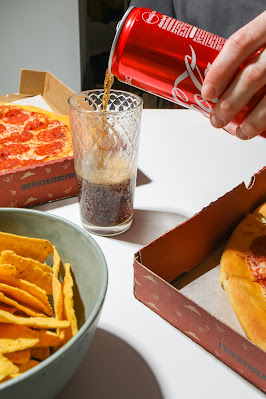
The ketogenic, or keto diet, is a low-carb approach to eating that many people have adopted in the hopes of losing weight and improving their overall health.
When following a keto diet, we limit our carbohydrate intake to 20 to 50 grams per day. It has been shown that this can help with weight loss and may improve heart health and glucose management. To get the benefits of the keto diet, it must be followed precisely.
The following are eight items that may sabotage your keto diet weight loss efforts.
One of the main reasons people don't lose weight on the ketogenic diet is that they eat too many carbohydrates.
To achieve ketosis - a metabolic state in which your body burns fat for energy rather than glucose - carb intake must be reduced.
Carbohydrates should account for about 5% of your total calories.
This is a clear contrast to the typical dietary recommendation that carbohydrates account for 45-65 percent of calories.
It's normal to have some difficulty eliminating carbohydrates when first starting out on the ketogenic diet.
Reduce carbohydrates to the recommended range to achieve and maintain ketosis.
Consider tracking your macronutrients with an app like MyFitnessPal to help you reach your admissions goals.
This might help you figure out how many carbohydrate servings you're allowed to take in a day based on your calorie demands.
Summary
To lose weight on a ketogenic diet, we should reduce carbohydrates to achieve ketosis and stimulate fat consumption.


2. You are not consuming a diverse range of nutritional foods.
Regardless of your plan, eating nutritious, whole food types is the key to long-term weight loss.
Whether or not they are keto-friendly, relying on processed food sources might have an impact on your weight loss.
Including meal types such as café, keto snacks, and other packaged food sources between suppers will derail your weight loss efforts due to the extra calories they provide.
Eating too many hotel meal choices, such as wieners and fast food, when you're on the go, might also stymie weight loss.
These foods are supplement deficient, which means they are high in calories but lacking in nutrients, minerals, and cancer-fighting agents.
Stick to natural, whole food sources to boost your supplement consumption while losing weight on the keto diet.
Full-fat dairy products, eggs, fish, lean meats, poultry, and solid fats like avocado and olive oil are all excellent choices.
To add supplements and fiber to dishes, include non-boring vegetables such as greens, broccoli, peppers, and mushrooms.
Summary
To improve weight loss when following a ketogenic diet, avoid eating too many processed food kinds and, on second consideration, focus on suppers and nibbles that contain new, whole fixings.
When striving to lose weight, it is common to have a calorie deficit.
Either reducing the number of calories consumed or increasing the number of calories used through increased actual work can accomplish this.
You're unlikely to lose weight if you switch to a keto diet and don't watch your calorie intake.
Because many keto-friendly foods, such as avocados, olive oil, full-fat dairy, and nuts, are high in calories, it's important not to overdo it.
Because of the filling effects of fat and protein, the great majority of people feel more satiated after eating ketogenic meals and snacks.
Nonetheless, it is far from impossible to consume an excessive amount of calories on a ketogenic diet by eating overly large portions or by consuming fatty food sources throughout the day.
Focusing on segment size, increasing physical work, and snacking with moderation between meals can all help to create the calorie deficit required to reduce pounds.
Summary
To improve weight loss, it is necessary to establish a calorie deficit when following any diet. Controlling portion sizes, limiting snacking between meals, and becoming more active can all help you lose excess weight.
4. You have an unidentified clinical problem.
The ketogenic diet is an intriguing weight loss tool.If you're failing to lose weight despite doing everything properly, it's critical to avoid any clinical conditions that might thwart your weight loss efforts.
Hypothyroidism, polycystic ovarian syndrome (PCOS), Cushing's syndrome, discouragement, and hyperinsulinemia (high insulin levels) are clinical conditions that can induce weight gain and make it difficult to get in shape.
A series of tests performed by your primary care physician can assist you in preventing certain illnesses.
Don't surrender if you have the above-mentioned condition.
You can achieve and maintain sound weight loss by lawful administration, including prescription assuming that essential way of life and dietary changes.
Summary
Weight loss can be difficult with some diseases, such as hypothyroidism and sadness. Assuming you're having a very tough time losing weight, consult with your primary care physician to avoid a concealed clinical condition.
5. You're making stupid weight-loss assumptions.
When starting a new diet, it's normal to expect immediate results. It is important to note, however, that weight loss might vary from person to person.Although the ketogenic diet can help you lose weight if followed correctly, the rate at which you lose weight may not be rapid - and that's fine.
Little predictable change is a reliable strategy to lose and maintain weight.
While it may be tempting to set lofty weight-loss goals, most experts agree that dropping 1-3 pounds or roughly 0.5-1 kg each week (depending on weight) is acceptable.
In addition, if you add weight lifting to your training routine, you may grow muscle while shedding fat.
However, this can result in more gradual weight loss, as adding bulk and decreasing fat mass benefits health in a variety of ways. It can lower your risk of heart disease and improve your bone health.
Rather than relying just on the scale, take weekly measurements of your arms, thighs, and midsection to track your progress.
Summary
A consistent weight loss of 1-3 pounds (0.5-1 kg) every week will help you stay motivated and maintain your weight loss over time.
6. You're always snacking on bad foods.
Snacking on delicious food can be a practical strategy of avoiding hunger between suppers and binging.However, eating so many keto snacks like nuts, nut spread, fat bombs, cheddar crisps, and jerky may reduce your weight loss level.
Although these nibbles are healthy when consumed in moderation, it is best to choose lower-calorie alternatives if you have more than one snack meeting each day.
Non-bland veggies and proteins, for example, can keep you feeling full without adding calories to your diet.
Delectable morsels like celery sticks and cherry tomatoes dipped in guacamole or a hard-boiled egg for specific sliced-up veggies are wise choices for people seeking a ketogenic intake of fewer calories.
Furthermore, adding more non-bland veggies to your diet offers a piece of fiber that may help keep your stomach-associated structure regular, which can be good for individuals who are just starting out on a keto diet.
Summary
Choose keto-friendly, lower-calorie food options for satisfying nibbles that won't cause you to gain weight.
7. You're stressed and aren't getting enough sleep.
According to research, stress, particularly continuous stress, and a lack of relaxation might have a negative impact on weight loss.When your body is stressed, it creates an excess of a hormone called cortisol.
Cortisol, often known as the stress hormone, can cause your body to retain fat, particularly in the belly area.
People who are always focused are usually sleepless, which is also linked to weight growth.
According to research, a lack of sleep harms hunger-controlling hormones such as leptin and ghrelin, resulting in increased appetite.
You may reduce stress and improve your sleep by trying techniques like meditation or yoga and spending less time with technological devices.
Summary
Weight loss might be hampered by stress and a lack of relaxation. Make a concerted effort to reduce stress and obtain enough rest.
8. You're not getting enough physical activity.
When aiming to lose weight on a ketogenic diet, it is critical to incorporate more vigorous work into your daily routine.Aside from promoting fat loss, adopting an exercise program benefits health in a variety of ways.
For example, exercise reduces your risk of developing chronic diseases such as coronary artery disease, diabetes, depression, discomfort, and obesity.
Not only does doing actual labor burn calories, but it also helps with muscle, which may help your digestion by increasing the amount of energy absorbed.
However, while starting an exercise program might be difficult, particularly for people who are new to working out, there are strategies to make it easier.
Making and sticking to an exercise schedule is the most effective strategy to sustain a healthy exercise habit.
Set a goal of three to four days each week and choose a time that works best for your schedule.
Keep yourself motivated by stashing a duffel bag in your car for after-work workouts or by laying out practice clothes before night to keep you on track for early morning workouts.
Summary
Practice improves one's well-being and aids in weight loss in a variety of ways. Make practicing a habit by scheduling a handful of workouts seven days a week.
This post contains affiliate links to products. We may receive a commission for purchases made through these links.
Conclusion
The ketogenic diet, when combined with other healthy lifestyle adjustments, can be an effective weight-loss tool.
However, there are a variety of reasons why some people may fail to get the results they desire.
Excessive calorie consumption, lack of activity, constant pressure, concealed clinical concerns, and failure to meet the recommended macronutrient levels can all have a negative impact on weight loss.
To accelerate weight loss on a ketogenic diet, obtain adequate rest, reduce stress, be more active, and eat whole, nutritious, low-carb food sources.
Have you been sabotaging your Keto Diet efforts? Let us know below how you handled it.
Lisa Lynn-Krazy Keto Kween
Keto On!!







Comments
Post a Comment